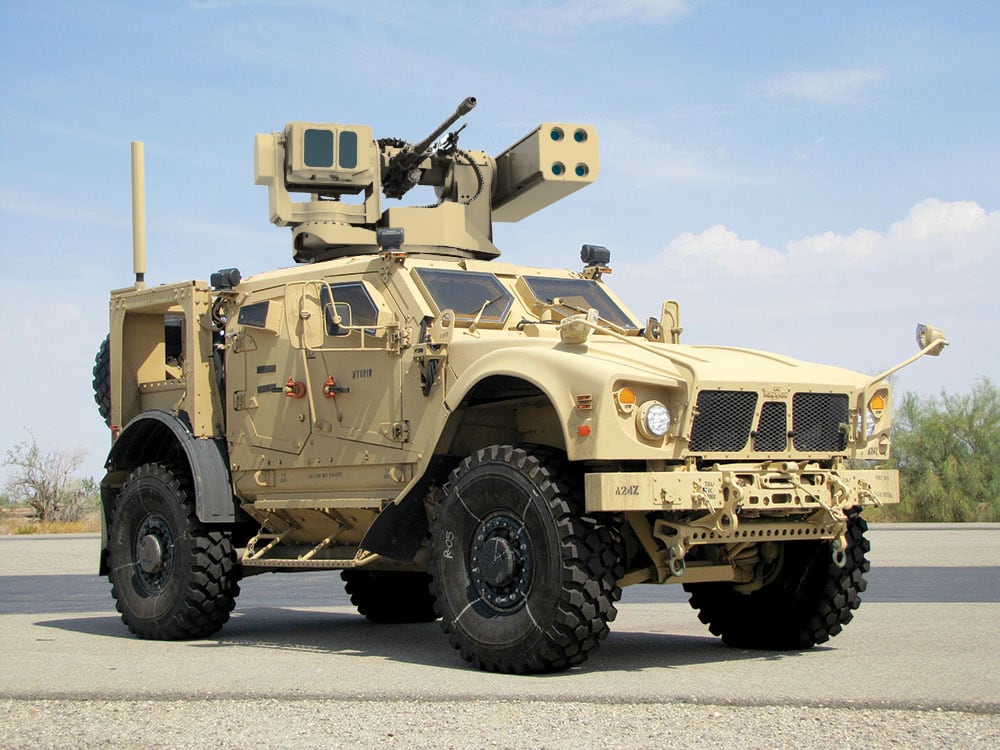WASHINGTON — Leonardo DRS has received an additional $13 million to continue engineering and testing a vehicle-mounted system that the U.S. Army hopes will protect soldiers from small drones, according to a July 31 Defense Department statement.
Leonardo was awarded an initial $16 million contract by the Army in July 2017 to develop a counter-UAV capability dubbed the Mobile Low, Slow Unmanned Aerial Vehicle Integrated Defense System, or MLIDS, with hopes of deploying “numerous production systems in early summer 2018."
At the annual Association of the U.S. Army conference in October, the company announced it had received a $42 million production contract for an undisclosed number of MLIDS to fit the Army’s requirement to defeat small, inexpensive unmanned systems such as quadcopters and fixed-wing aircraft that operate as airborne improvised explosive devices.
“Drones are becoming an increasingly dangerous threat against our forward-deployed soldiers, and we are proud to support this urgent requirement to protect them from potentially lethal small unmanned aerial vehicles,” Aaron Hankins, vice president and general manager for DRS Land Systems, said in October 2017. “We are working hard to deliver the best capability to our soldiers as quickly as possible."
RELATED

MLIDS is a combination of various sensors and shooters mounted on two mine-resistant, ambush-protected all-terrain vehicles, or M-ATV. One M-ATV carriers the electro-optical and infrared sensors; in this case DRS' elevated mast-mounted Surveillance and Battlefield Reconnaissance Equipment. This system is used to cue and track potential targets, as well as engage in electronic warfare by jamming signals controlling the unmanned vehicle.
For another M-ATV, Leonardo has partnered with Moog to offer the Reconfigurable Integrated-weapons Platform. Although the RIwP can be transformed into more than 100 configurations, for this system the turret is expected to fire a 30mm proximity round designed to defeat a small group of one or two UAVs. But DRS also plans to integrate other kinetic weapons onto the platform, specifically a small UAV that can be deployed from the M-ATV to engage the enemy unit.
The RIwP was selected for the requirement over the Common Remotely Operated Weapon System, developed by Kongsberg Defence and Aerospace. CROWS has previously deployed on the Army’s Stryker vehicles and M1 Abrams main battle tank.
Work on the contract is now expected to be complete by May 2019.
Valerie Insinna contributed to this report.
Daniel Cebul is an editorial fellow and general assignments writer for Defense News, C4ISRNET, Fifth Domain and Federal Times.








